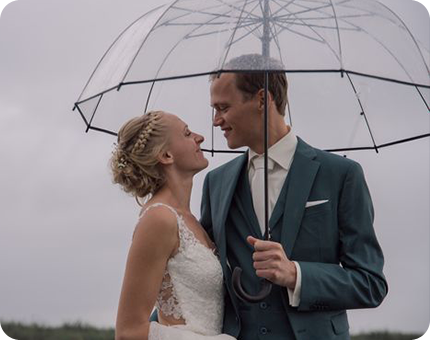

- 30 December 2024
Marriage is one of the most beautiful things there is. You need to arrange a lot of things, and you also have to make a few agreements. One of these agreements is under which arrangement you are going to marry, in community of property or will you choose prenuptial agreements. There are two types of community of property. You have the choice between a limited or normal arrangement. You also first have the option for a registered partnership.
Registered Partnership
If you don’t want to marry your partner yet, but still want to be legally recognized as being together, you can choose a registered partnership. It is essentially a legally recognized form of cohabitation. You can take each other’s surname and you don’t have to get divorced in court. Many people opt for a registered partnership because they expect a child. The father is then legally recognized as the parent of the child. You can also determine for yourself what you share and what you don’t. You can adjust this in the partnership conditions, where you specify which debts and assets belong to whom. For the partnership conditions, you go to the notary. If you have a registered partnership, you can later also get married.
Limited Community of Property
Since January 1, 2018, the limited community of property has been in place. If you want to change this to the full community of property, you can arrange this with the notary. Different rules apply to both arrangements. In the limited community of property, not all assets and debts fall under the statutory community of property. Inheritances and gifts you receive before and during the marriage are also not jointly owned but remain yours. The person you inherit from can specify in the will that your partner also receives part of the inheritance. Of course, you can share it with your partner if you wish. Assets and debts that you incurred alone before the marriage or registered partnership are not shared but are for you alone.
Starting a Business During Marriage in Community of Property
If one of you starts a business during the marriage or registered partnership, it belongs to both of you. If this is not the case and the business was started beforehand, it belongs to that person alone. If you divorce, both you and your partner will receive 50% of all assets and debts that fall under the statutory community of property.
Full Community of Property
In the full community of property arrangement, everything belongs to both of you. All assets and debts that already exist or will be made are and will remain jointly owned. Inheritances and gifts you receive are also jointly owned. In some cases, assets and debts are excluded from this, but only under specific conditions. For example, if you receive an inheritance, the person granting it can specify in the will that it is only for you, and your partner gets nothing from this money. A business also falls under the community of property. If you have a debt, creditors can seize joint property. If you divorce, both you and your partner will receive 50% of all assets and debts.
Prenuptial Agreement
You can also choose to marry with a prenuptial agreement. If you marry with a prenuptial agreement, you keep your debts and assets separate. For example, you keep your own income, savings accounts, and debts. There are specific reasons why someone would want to marry with a prenuptial agreement, such as debts, assets, or owning a business. If one of you has large debts, it is very helpful to marry with a prenuptial agreement. You don’t have to share the debts if you divorce. It’s also useful because creditors cannot touch the money or property of the other. If one of you has significant assets, such as a high income, it is beneficial to marry with a prenuptial agreement so you don’t have to give up your assets if you divorce. If one of you owns a business, it is smart to marry with a prenuptial agreement, so the other can’t take the assets if you have a debt.









